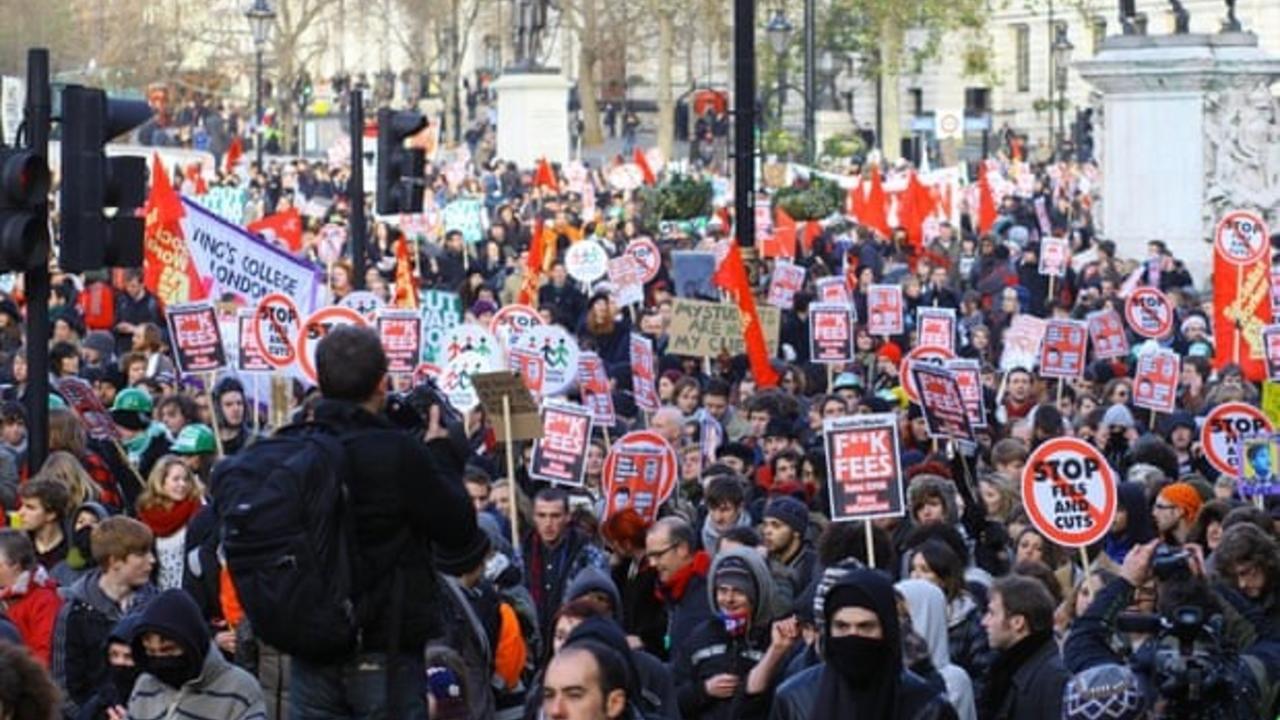Why I became an Organiser

by Amanda Walters - Director at the Centre for Progressive Change
Another Fail
As we waited in the freezing December cold, I took out my phone one more time to see if the news had come in yet. My fingers frozen from being kettled for hours made it hard to work the pad. Finally, the screen lit up, but I could see no headlines had come through yet.
The mood in Trafalgar square was ominous as we waited for the results of the vote on whether the government were going to rise university tuition fees from £3,000 a year to £9,000 a year. Everyone in the square was cold, tired and hungry. Some people were building fires, some were trying to break into the Treasury, while thousands of others were standing around waiting impatiently for the results.
The last 6 months prior to this point had been relentless. For me, as the Campaigns Officer at the University of Manchester Students’ Union, every waking moment in those months I spent engaging students in Manchester and moving them into action. We marched in Manchester and in London, we occupied the University, we took direct action… we mobilised thousands of students to act. We did everything we could… right?
I suddenly heard a murmur ripple through the square, across the thousands of students kettled there. I took out my phone and saw the headline. We had lost. My heart sunk. And I thought to myself, all that work and dedication amounted to nothing. I cried the whole way home. I locked myself in my room and questioned everything I’d ever believed. Can we actually create change? Is there a way to actually win progressive campaigns? Because so far in my lifetime, I’d not seen that we could.
This question lead me on a quest to find out the answer, and to start exploring who is actually winning progressive campaigns, and how are they doing it. And that is how I came across Organising.
The Solution: Organising
Organising is where you bring a wide range of people and organisations from a community or workplace together to build a unified body. By coming together in this way that community or workplace then has enough weight behind it in order to challenge politicians and companies to act on the issues impacting that community. I’m sure many of us have experienced how difficult it is to get listened to when you are the only one person speaking up, or you are just a few people. In Organising you bring together hundreds or thousands of people together so that you cannot be ignored, and you can further your collective agenda.
There are 3 key differences between Organising and the campaign we did as students in 2010.
1. Build a broad coalition
In Organising you want to build broad coalitions, rather than mobilise just one facet of the population such as students. You do this so that you can have more strength. The more diverse your coalition is the more likely it is that politicians will care about what you have to say. And they are less able to box you in as one interest group among others. This way they can also not pit you against each other.
2. Research the interests of your opponent
Knowing your opponent’s interests and Achilles’ heel is key to Organising. Once you have done enough desk based and on the ground research then the actions you do should be aimed at using this knowledge to your advantage. For instance, in 2010 it would have strengthened our hand to have a real understanding of the interests of those in government so that we could focus our actions on trying to become a threat to this.
3. Be strategic
By doing a Power Analysis of the fight you are in, and what you need to do in order to win and shift the power balance, you can form your strategy and decide on specific tactics that will get you to where you want to be. We often decide to take particular actions, like marching or occupying a University, because it is familiar and what we know. In Organising, on the other hand, what we are interested in is what actions will be effective.
I don’t know for sure that having used an Organising model in 2010 would have led to a win. But what I do know is that since I became an Organiser in 2013 I finally started winning campaigns and have seen that you can create change, and that by using this methodology you can win progressive campaigns.